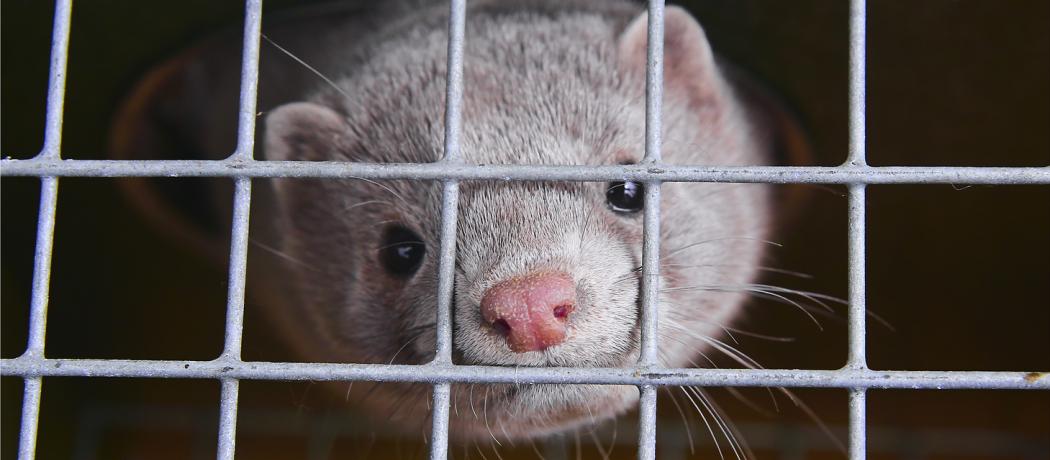World Zoonoses Day, on 6 July, is a day to call attention to infectious diseases that can spread between people and animals. On this day in 1885, Louis Pasteur administered the first rabies vaccine to a human bite victim, a young boy bitten by a rabid dog. The vaccine worked; it prevented the boy from getting rabies and saved his life.
Armed with effective vaccines, we have come a long way in fighting rabies. By vaccinating animals, we have eliminated rabies in dogs in Canada and dramatically reduced the numbers of cases in people. The devastating death of a young man in British Columbia from rabies after coming into contact with a bat is a tragic reminder that contact with wild animals remains a risk.
Examples like rabies have made it clear that by respecting and improving the well-being of animals who share this beautiful world with us, we safeguard our own well-being.
Farming of animals can be profitable, especially when done on a massive scale. But it has major externalized costs, environmental repercussions, and devastating long-term impacts. Fur farming, which involves the breeding and intensive confinement of naturally wild animals at risk of zoonotic viral respiratory tract infections like COVID-19 and influenza, is a case in point.
There are an estimated 90 million animals worldwide caged and bred for fur. This practice may be particularly risky when combined with the international wildlife trade and live animal markets. A recent report documented that mink, civet cats, and raccoon dogs were among the many live animal species sold in crowded markets in Wuhan, China, in 2019, and may have had a role in the beginnings of the COVID-19 pandemic. In response, China permanently banned most of the terrestrial wildlife trade and provided support for people who had relied on breeding wild animals for income.
In British Columbia, despite implementing biosecurity measures, there have been outbreaks of COVID-19 on three mink fur farms. The latest was documented in May 2021 on a farm with over 25 000 animals. The SARS-CoV-2 virus was likely transmitted from a worker to the mink and then spread rapidly among the thousands of animals packed next to one another in small wire cages.
Experience on fur farms in Denmark has demonstrated that novel mink-adapted strains can be transmitted from mink back to humans. These novel strains could reduce the effectiveness of vaccines and further increase transmissibility. In response, rather than breeding for fashion or profit, the Danish government announced the culling of all mink and a ban on fur farming until at least 2022.
Coronaviruses from animals are not the only threat. Mink, like humans and birds, are susceptible to influenza. Outbreaks of influenza on large fur farms in Canada where mink can be infected with both human and bird flu viruses pose an additional risk for novel pandemic influenza and need to be taken seriously.
We are now in a position of re-evaluating fur farming in Canada and deciding whether it is a practice of value to the province that should continue to be permitted and financially supported. Since 2014, provincial and federal governments have already spent $100 million on fur farming in Canada, and more will likely be needed to keep this industry afloat.
We could require COVID-19 vaccines for all animals on fur farms, and continue to invest public money and resources in monitoring for breakthrough infections and vaccine escape mutants. But this does not eliminate the risks, and it fails to acknowledge the fact that the confinement of naturally wild animals, native to Canada, is inhumane and has been condemned by the BCSPCA and the Union of BC Indian Chiefs.
This year, on World Zoonoses Day, as infectious diseases specialists armed with an understanding of the importance of zoonotic infections, we call on our elected representatives to provide generous financial support for the operators and breeders to be able to stop this practice, to prioritize public health, to respect the BCSPCA, the Union of BC Indian Chiefs, and public opinion, and make a very positive and historic step forward.
—Alastair McAlpine, MD
Infectious Diseases Specialist, BC Children’s Hospital
—Jan Hajek, MD
Infectious Diseases Specialist, Vancouver General Hospital
This post has not been peer reviewed by the BCMJ Editorial Board.


